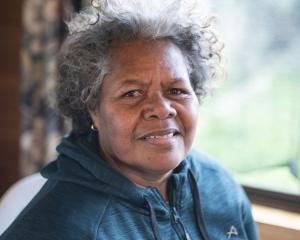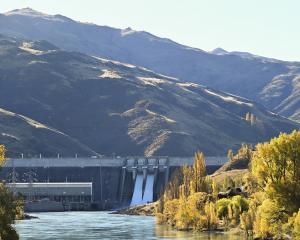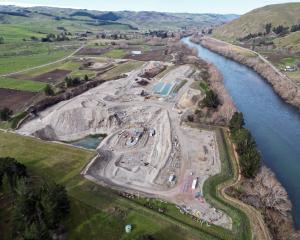As long as today's solid-fuel burners are the main form of home heating in Otago, it's unrealistic to expect the region to meet national air quality standards, Otago Regional Council scientist Deborah Mills says.
''At the core of the challenge in Otago is the fact that air temperatures are some of the lowest in the country and residents rely on solid-fuel burners to provide adequate levels of warmth to their homes.''
Not meeting national standards could have significant consequences for the region's industry, she said in a report to be considered by the regional council's technical committee tomorrow.
If the region's air sheds breached the National Environmental Standard for Air Quality (NESAQ) more than three times a year by 2016 and more than once by 2020, it could put constraints on new and renewing consents for industrial discharges to air.
Reviewing the region's air quality after 10 years of measures to reduce air pollution and the effectiveness of the council's air-quality management strategy showed progress was uneven and several towns, such as Alexandra, would not meet national standards, Ms Mills said.
''It is unlikely, that under the current strategy setting, air quality will improve enough to meet the NESAQ [in airzone one].''
The major source of PM10 (small particles) was emissions from solid-fuel burners used to heat homes.
Census data showed 34% of Otago households use solid-fuel burners, which was higher than the national average.
''Most of the year, air quality in Otago is very good but in winter, when chimney emissions and PM10 concentrations peak, outdoor air quality is often degraded to sub-standard levels.''
The most likely way for a high air-polluting town like Alexandra to meet the national standards would be for the regional council to allow only pellet fires or ''non-emission'' appliances, such as heat pumps or gas fires, she said.
This was because even if solid-fuel burners met emissions standards, they could emit just as much PM10 as older, non-compliant burners, depending on user behaviour, such as banking down a fire at night, and the moisture content of the wood used.
However, if almost all burners in the town were compliant and well-operated with dry, seasoned wood and not damped down, it was estimated emissions could drop another 35% and correspondingly reduce the number of times a town exceeded national standards, she said.
She suggested the council retain its commitment to solid-fuel burners in existing homes for the time being but consider requiring low-to-no emission heating in new houses that were well-insulated and built.
Since 2008, the number of times Alexandra breached national standards had stayed about the same but the highest daily figures have dropped from 150mcg to 130mcg (14%).
In comparison Central Dunedin's have dropped 25%.
Estimates based on the number of burners installed in Alexandra since the air-quality restrictions came into force in 2005 indicated about 60% were low-emission rated.
Alexandra was one of seven New Zealand sites which exceeded the World Health Organisation annual guideline for air quality based on figures from 2006 to 2012.
Airzone two towns, such as Dunedin and Mosgiel, but not Milton, were more likely to meet the national standard under the present strategy, she said.
Tomorrow the council was being asked to consider eight issues, including collaborating with other authorities to develop a consistent message, looking at higher levels of enforcement and education, promoting best practice and actively investigating new technologies.
The information was to provide a basis for the development of the next five to 10 years of air quality management, she said.
ORC air quality challenges
National environmental standard for air quality
• Introduced in 2004.
• Designed to provide public health protection from pollutants found in atmosphere.
• Set daily standards for PM10 (small particles) based on World Health Organisation guidelines.
• No more than one day a year over the daily concentration of 50mcg.
• Deadline was 2013 but revised in 2009 to 2020.
ORC air quality rules
Airzone 1: Alexandra, Cromwell, Clyde and Arrowtown.
• Solid fuel burners to be replaced with low-emission burners of no more than 0.7g/kg or 1.5g/kg and approved by the Ministry for the Environment.
• Banning of coal burning.
Airzone 2: Dunedin, Mosgiel, Balclutha, Milton and Palmerston.
• Relies on natural attrition of burners as householders replace them.
• Any new burner must meet 1.5g/kg emission standard.












